
Life at War. Anastasiia: till the last, we thought it was not worth going anywhere
Anastasiia from Kivsharivka in the Kharkiv region is a third-year student of international relations at the Kharkiv National Karazin University. During the months before 24 February, she was engaged in the EU-Ukraine Dialogue Initiative project as a part of the Young European Ambassadors initiative, and supported the activities of an international team of EU-based and Ukrainian YEAs. Anastasiia is also a fellow of the Sur-Place Konrad Adenauer Stiftung 2021/2022.
“I was very lucky that I was in my home village on 24 February and was planning to go to Kharkiv by the end of February. My sister and I woke up to the bombing, as the bridge of Kupyansk was destroyed 15 kilometres away from us. We perfectly understood that it was “quiet” compared to other cities of Ukraine, but we did not know what to do or whether it was worth it to go somewhere,” Anastasiia remembers.
On 27 February, Russian troops entered Kupyansk. Anastasiia and her family found themselves under occupation. The mayor is known for giving the town to the Russians, explaining his decision by his desire to save the city from destruction and the killings of civilians. There was no one to protect the town, as everyone had been sent to Kharkiv. Anastasiia remembers that, from that day on, the bombers and helicopters were constantly flying over the town, and there were explosions. Still, it was “quiet” compared to other areas. Twice, people came out to protest, but they were quickly dispersed with machine guns and tear gas. The head of the local territorial defence unit went missing during the first protest. No one even looked for him, because they saw him being taken away by Russian soldiers.
The town quickly ran out of food and medicine, and bread cost like gold. A local farmer was the only businessman who was willing to lower prices and allow payment with bank cards. Every trip to the store meant a minimum of two hours queuing in a line.
“Oh, the queues! That’s where I would begin to hate everyone: a vivid mix of political debates from pseudo-professionals and phone news from a girlfriend, a cousin, a neighbour, a daughter, or a brother about the ‘shelling at 5 pm’. It was the most unsafe when a line would include both fans of Zelenskyi and Putin (yes, they exist, which is a great pity and horror!),” Anastasiia recalls.
“Till the last, we believed that as long as it was quiet, there was no reason to go anywhere. We did everything to take mind off things: reading, painting, sewing, and walking. We had problems with connection and Internet. Then we realised that eventually the Russian troops would retreat and then everything we were afraid of could happen. We did not know how and with whom to go. Accidentally, we found out that there was a carrier to Warsaw, found their contacts and booked a seat. The exact date of the trip was not known; we had to wait for a call,” says Anastasiia.
Choosing a country was easy. Her father worked in Poland, so she and her family went there. There were three family members travelling – her mother, her sister and she, and pets, a cat and a dog. The young woman felt very lucky, because the pets stayed calm, although it was a great stress for them.
“Our bus took us through Kharkiv. We also slept in the bus. We stopped every 3-4 hours. A total of about 50 people, a few dogs and a cat were on the bus. There were four such buses. All went in a column. Between Kupyansk and Kharkiv, we passed seven checkpoints of the Russian troops. Women were not searched; only men were checked. Russian soldiers had faces with no signs of intelligence, and wore Soviet uniforms,” she says. The border was crossed quickly and without additional problems, yet the entire road from Kupyansk to Warsaw took about 38 hours.
“When leaving my hometown, I did not want to say goodbye to my beloved home and streets, because I had no idea what would happen, whether we would come back at some point, and whether our friends and acquaintances would be safe. But that morning when we left, the sun was shining brightly, like a good sign,” she says emotionally.
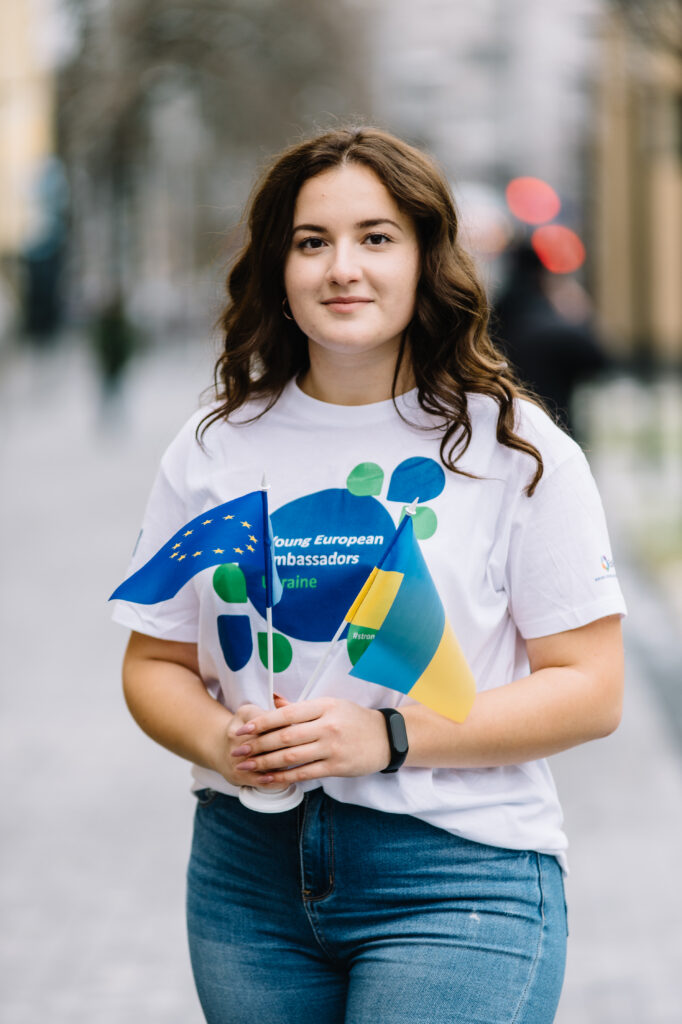
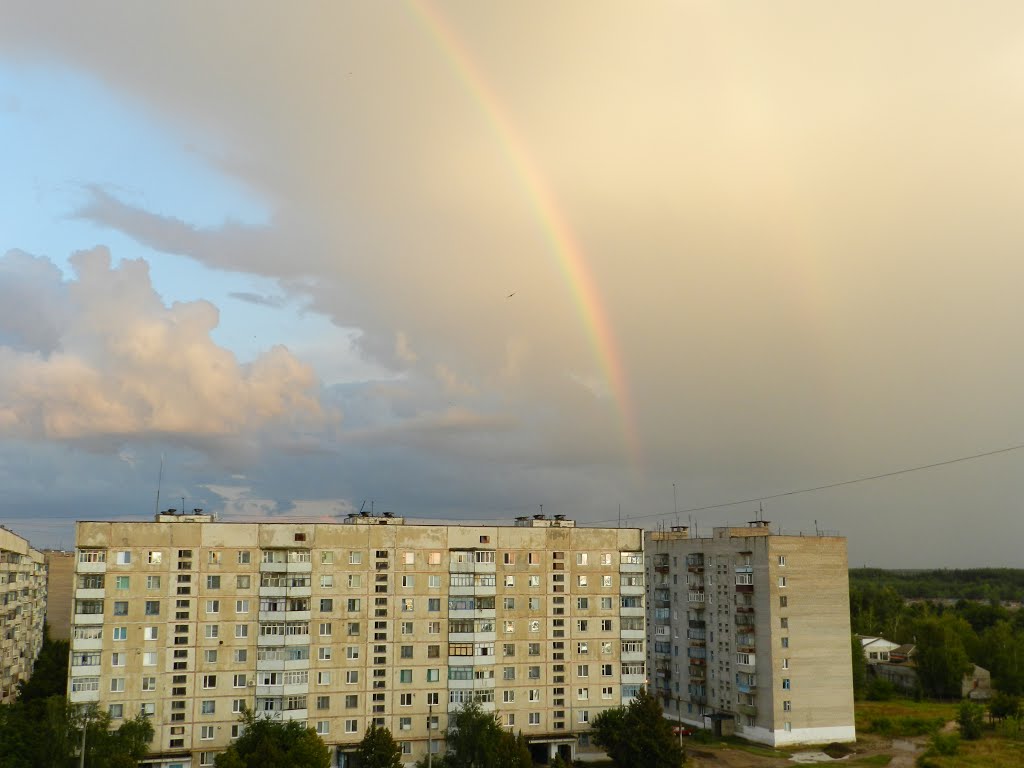
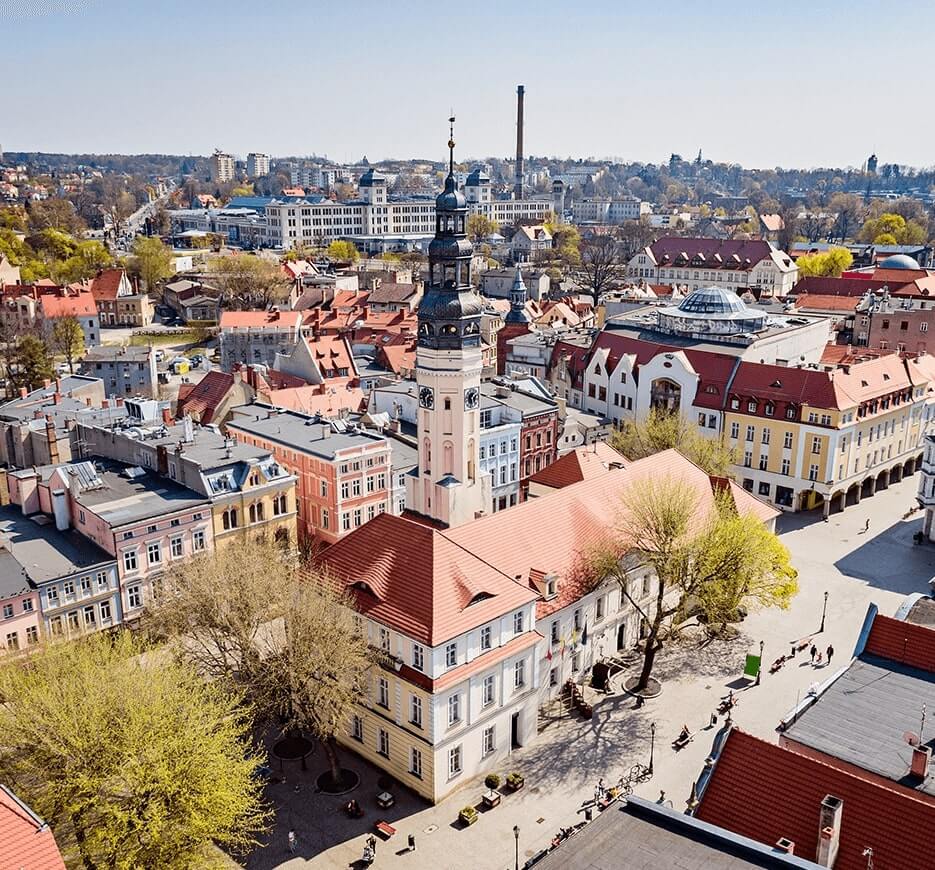
“When we crossed the border with Poland, I realised that we had no place to stay for the night in Warsaw on the way to our destination (my dad’s company provided us with a room for rent in one of the Polish towns). It had just slipped my mind. Therefore, we thought about the option of staying at the refugee centre, although we were not sure they would let us in, because we had quite a big dog. I also contacted some of my friends; they offered me several options for staying in Poland, all of them in other regions. We were lucky because the dad who met us was able to find an inexpensive hostel for our whole family, where Ukrainians worked and were willing to help us. We spent the night and left the next day.
The most disturbing thing for Anastasiia now is the complete lack of contact with her relatives and friends back home. Russian troops have completely blocked mobile and Internet communication in their region, so they do not even know how to help them.
Anastasiia is uncertain about the future: “I am a third-year student at the Kharkiv National University. A month after the start of the war, my studies were resumed. I can’t say that I was happy about it for many reasons. I was also looking for the possibility of a full-time transfer to a European university, but now I am interested in financial stability and professional development, which a diploma will not give me. The two months of war completely changed my priorities and goals.”
Author: Sofia Korol
MOST READ
SEE ALSO

‘The Kremlin has entered the chat’: how to protect your personal data on Telegram and avoid the bait of propaganda

No, time is not on Russia‘s side
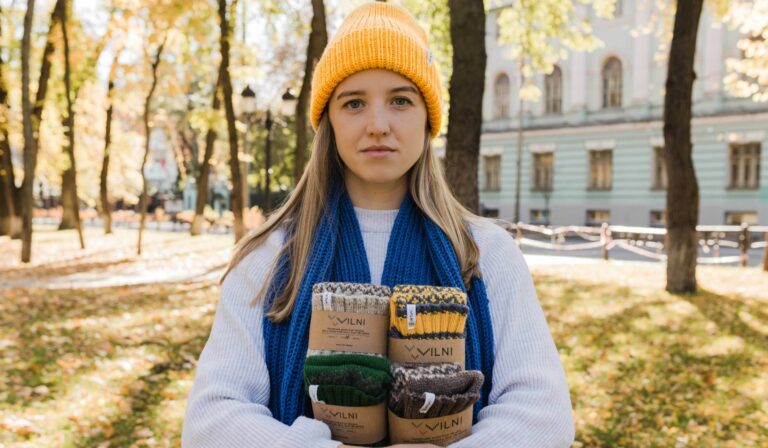
Socks for Peace: how the Vilni project is supporting internally displaced women in Ukraine
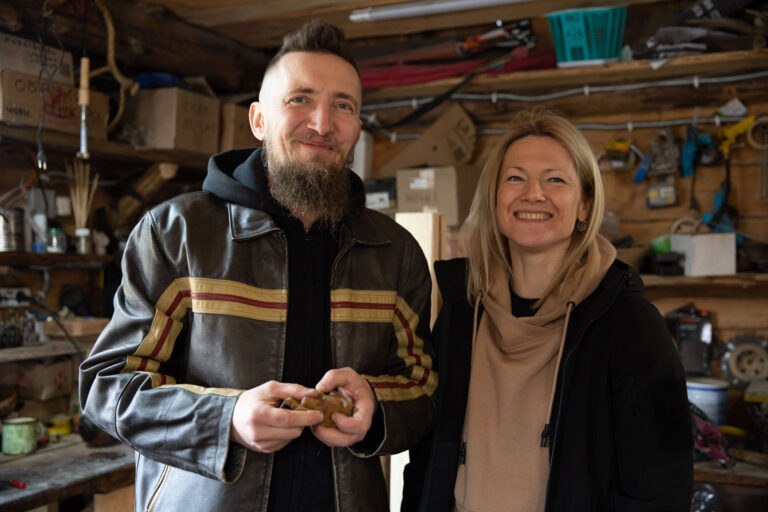
Celebrating traditional Ukrainian cultural identity in Rivne

Natalia wanted her child to escape the war: how a single mother set up a successful business in Lithuania
More campaign pages:
Interested in the latest news and opportunities?
This website is managed by the EU-funded Regional Communication Programme for the Eastern Neighbourhood ('EU NEIGHBOURS east’), which complements and supports the communication of the Delegations of the European Union in the Eastern partner countries, and works under the guidance of the European Commission’s Directorate-General for Neighbourhood Policy and Enlargement Negotiations, and the European External Action Service. EU NEIGHBOURS east is implemented by a GOPA PACE-led consortium. It is part of the larger Neighbourhood Communication Programme (2020-2024) for the EU's Eastern and Southern Neighbourhood, which also includes 'EU NEIGHBOURS south’ project that runs the EU Neighbours portal.

The information on this site is subject to a Disclaimer and Protection of personal data. © European Union,







